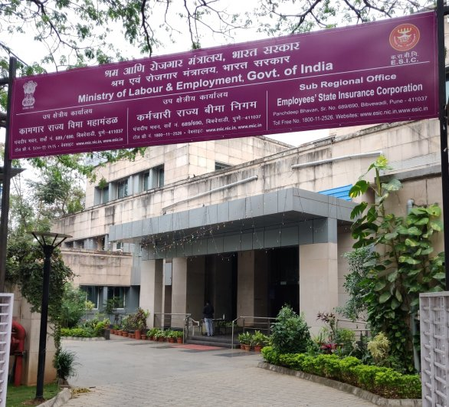
New Delhi, Oct 2 (IANS) The Employees’ State Insurance Corporation (ESIC) has issued detailed guidelines for the new Amnesty Scheme 2025 for settlement of court cases and withdrawal of prosecution cases.
The measure is aimed at simplifying compliance and reducing the burden of litigation to facilitate ease of doing business, according to an official statement.
The Amnesty Scheme 2025 is a one-time dispute resolution initiative aimed at reducing the backlog of court cases, promoting compliance under the ESI Act, and enhancing ease of doing business.
The scheme provides an opportunity to employers and insured persons to settle disputes outside courts in a structured and transparent manner. It will remain in operation from October 1 to September 30, 2026.
For coverage disputes, the scheme applies to both closed and running units. Units closed for more than five years with litigation pending for over five years and no assessment will have their cases withdrawn. Units closed within five years must produce records, pay accepted dues with interest, and will not be liable for damages.
Running units can also settle disputes by producing records to support their claims, with no damages imposed. However, cases where employers voluntarily registered through Form-01 on the ESIC portal are excluded.
For contribution disputes, the scheme covers cases challenged under Sections 45A, 45AA, 75, 82, or Article 226 (without substantial legal questions). Employers must obtain court permission, apply in the prescribed format, and pay contributions (both employers’ and employees’ share) with interest as per records. Where records are missing, documents from the EPFO or Income Tax authorities may be relied upon for verification.
In cases where no such records are available, the employer will be required to pay at least 30 per cent of the assessed contribution. Additionally, interest on the dues will be payable at the revised contribution rate. No damages will be levied, but employers must give an undertaking for future compliance.
For damages disputes, cases will be withdrawn on payment of 10 per cent of the determined damages where contribution and interest have already been paid. If ESIC has appealed in higher courts, damages as fixed by the lower courts will be accepted and cases withdrawn.
Criminal cases under Section 84 against insured persons for wrong declarations will be withdrawn if excess amounts are refunded and an undertaking is given, with no interest charged. Cases pending for over five years where insured persons cannot be traced may also be withdrawn, but those involving conspiracy or forgery are excluded.
Prosecution cases under Sections 85 and 85A against employers may be withdrawn if contributions and interest are paid based on records or alternative documents like EPFO/IT filings. Where no records exist, dues will be assessed on declared wages, SSO survey reports, or minimum wages. No damages will be imposed.
The scheme also covers old cases under Sections 85(a) and 85(g) pending for over 15 years with dues up to Rs 25,000.
For closed units, such cases may be withdrawn. For running units, compliance must be updated and at least 30 per cent of dues with interest paid. Cases under Section 85(e) for non-submission of returns may be withdrawn since the requirement is redundant with digitalisation, subject to compliance. Cases of late submission of declaration forms pending for more than three years may also be withdrawn if compliance is complete and accident cases are settled.
To ensure smooth implementation, Additional Commissioner cum Regional Directors/Regional Directors/Director (I/c)/Joint Director (I/c)/Deputy Director (I/c) of ESIC Regional & Sub-Regional Offices have been fully empowered to process withdrawals and settlements during the scheme period. A field-level committee comprising legal and finance officers along with panel advocates will review such cases.
All cases must be settled within six months from the date of application, and even those who availed earlier amnesty schemes are eligible to benefit from this new initiative.
By offering a practical, transparent, and employer-friendly mechanism for dispute resolution, this scheme removes procedural bottlenecks, facilitates faster closure of long-pending cases, and builds confidence among stakeholders.
It is expected to ease operational challenges for employers, reduce the legal load on courts, and further strengthen ESIC’s role as a progressive and responsive social security institution, the statement added.
–IANS
sps/svn




